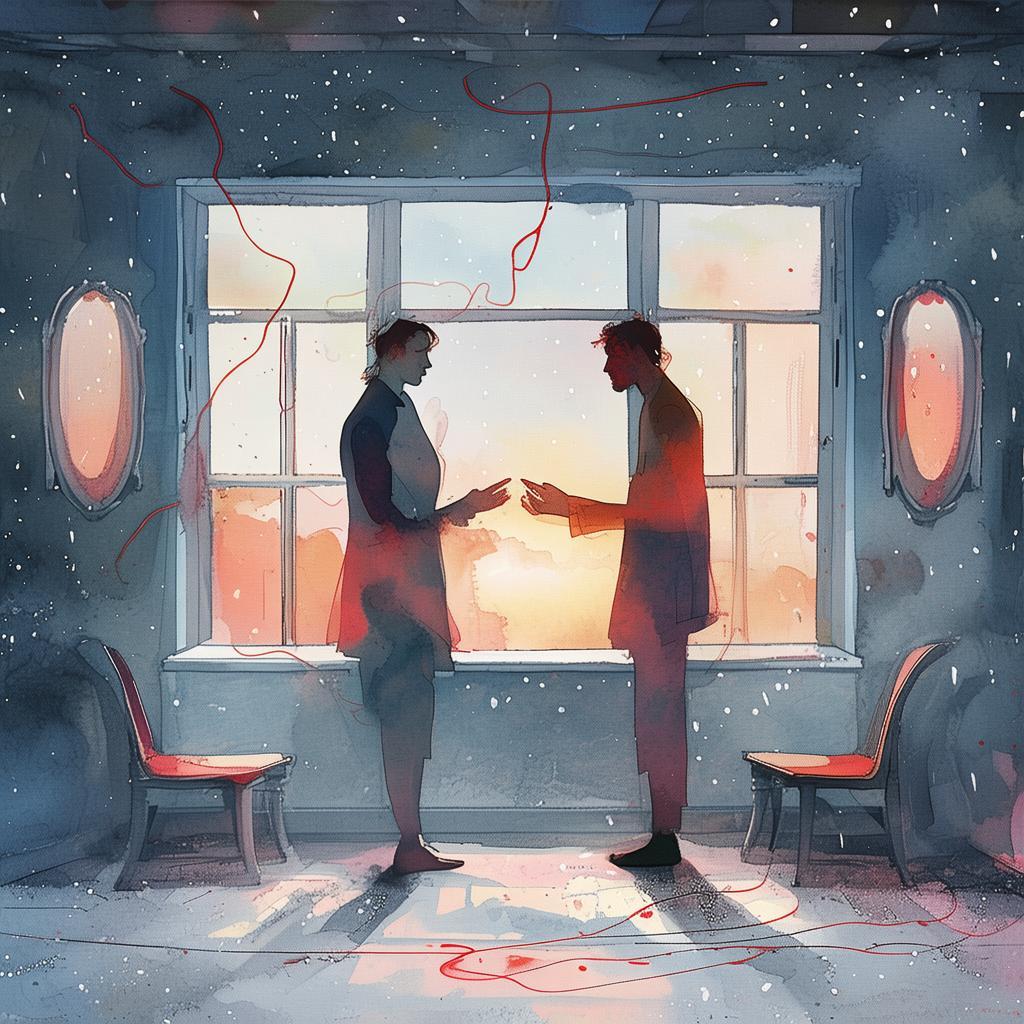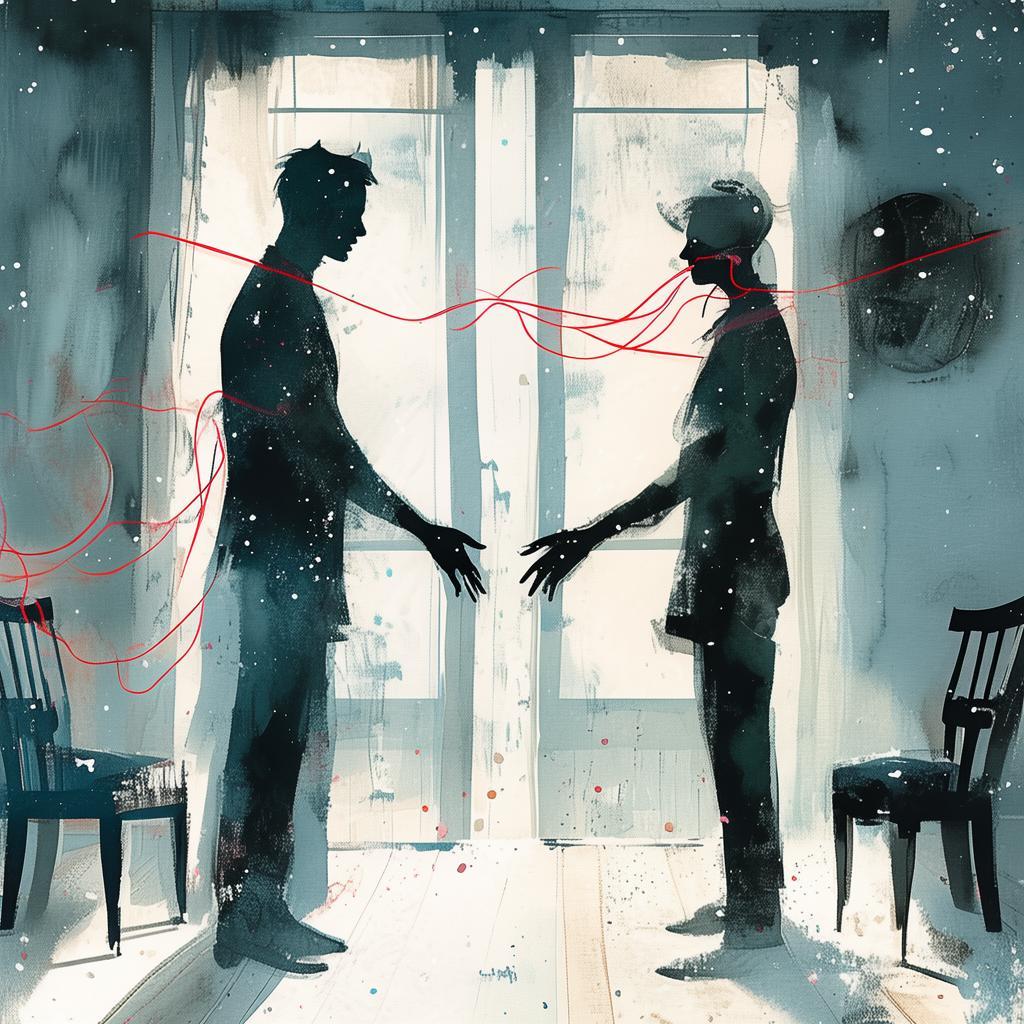The Prince of the Nightingale's Lament: A Romantic Opera's Love
In the hallowed halls of the Opéra de Paris, where the melodies of the nightingale's lament echo through the grand chandeliers, there lived a prince whose heart was as complex as the operas he performed. Known as the Prince of the Nightingale's Lament, he was a figure of both admiration and enigma. His passion for the art of opera was matched only by his intense dedication to the tragic tale of the nightingale, whose love for her prince was as pure as the crystal-clear streams they sang about.
The prince was not just a performer, he was a master of his craft, a maestro whose every note and gesture spoke of a profound connection to the characters he portrayed. Yet, there was a darkness that clung to him, a sadness that seemed to color every performance, a shadow that whispered tales of unrequited love and a heart that had been pierced by the arrows of Cupid's own hand.
His counterpart was a nightingale, a spirit of the night, whose song was both a lullaby and a lament, a reminder of the fleeting nature of beauty and love. She was the muse who inspired his greatest works, the silent partner in his soliloquies, and the unspoken whisper in his duets.
The story began with a chance encounter on the night of a performance. The nightingale, weary from her endless song, found herself at the edge of the stage, her voice a mere echo in the vastness of the opera house. It was there, in the stillness of the night, that she met the prince. Their eyes met, and for a moment, time itself seemed to stand still.
The prince was captivated, not just by her beauty, but by the depth of her presence, a spirit that seemed to be made of the very air he breathed. From that moment on, their lives were forever entwined, a tale of forbidden love that would echo through the ages.
As the days passed, the prince found himself drawn to the nightingale, his heart a tumultuous sea of emotions. Yet, he knew the risks. They were from different worlds, and their love was a fire that could consume them both. The nightingale, too, felt the pull of the prince's passion, her heart ached with the desire to be by his side, yet she feared the outcome.
Their affair was a silent dance, a game of hide and seek that played out beneath the watchful eyes of the opera house. They communicated through glances, through the notes of their performances, through whispers that only the nightingale could hear. It was a love that could not be spoken, a connection that was as much a part of the opera as the very air they breathed.
But as fate would have it, their love was not meant to be. The prince's world was one of power and influence, and his affair with the nightingale was a secret that could not be kept. The moment their love was discovered, it became a dangerous game of chess, with the pieces being the lives of those closest to them.
Betrayal followed swiftly, and the nightingale was forced to flee. She left behind not just the prince, but the life she had known, the songs she had sung, and the love that had defined her existence. The prince, in turn, was shunned by his peers, his once adored performances now met with silence and disdain.
In her exile, the nightingale found solace in the wilds, her voice a haunting reminder of the love she had lost. She sang of the night, of the stars that twinkled in the dark, and of the prince whose heart was as broken as her own.
The prince, too, lived in solitude, his performances now hollow, his music a mere echo of the passion that once burned so brightly. Yet, he could not forget the nightingale, the love that had defined him, and the price he had paid for it.
One night, as the moon hung low in the sky, the nightingale found her way back to the opera house. It was there, beneath the grand chandeliers, that she met the prince. Their eyes met, and the world seemed to fall away, leaving only them and the love that had driven them to this moment.

The prince, knowing the cost of his love, offered to leave his life behind, to follow the nightingale into the wilds, to live out their days in the shadows. But the nightingale, in a moment of profound loyalty and love, turned him down. She knew that the prince's place was in the opera house, and that her love, while eternal, had to be a silent one.
As the nightingale took her leave, the prince watched her silhouette against the moonlight, a reminder of the love that had once been, and the hope that still remained. He vowed that his performances would be a testament to their love, that even in the face of tragedy, love would always find a way.
And so, the Prince of the Nightingale's Lament continued to perform, each note a whisper of their love, each act a silent dedication to the nightingale who had captured his heart and soul. Their love, though tragic, would live on forever in the halls of the opera house, a testament to the power of love and the enduring spirit of the nightingale's lament.
✨ Original Statement ✨
All articles published on this website (including but not limited to text, images, videos, and other content) are original or authorized for reposting and are protected by relevant laws. Without the explicit written permission of this website, no individual or organization may copy, modify, repost, or use the content for commercial purposes.
If you need to quote or cooperate, please contact this site for authorization. We reserve the right to pursue legal responsibility for any unauthorized use.
Hereby declared.









